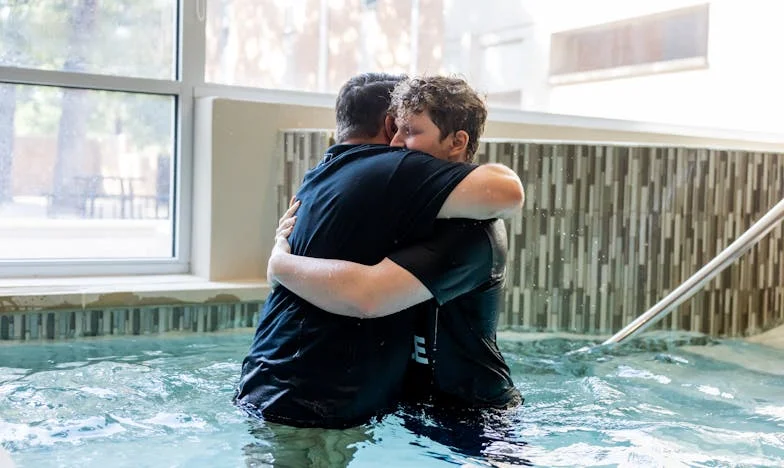When My Husband Chose His Mother Over Me: A Story of Love, Loyalty, and Survival
“So you’re really going to make me choose?” Michael’s voice echoed through the kitchen, his knuckles white as he gripped the countertop. I could hear the desperation in his question, but also the threat underneath.
I stood there, frozen, clutching a mug of coffee I hadn’t touched in hours. “Michael, I just… I can’t do this anymore. Your mother has to move out. We need space to breathe.”
His eyes narrowed, his jaw clenched. “If you can’t accept my mom living with us, maybe you can’t accept me either.”
I felt my heart plummet, the words slicing through me like ice. Only months ago, I’d stood in a white dress, promising to love him, to build a home together. Now, the home we’d built was so crowded with resentment and unspoken words, I felt like I was suffocating.
When Michael and I got married in the fall, we didn’t have our own place. Rents in Seattle were sky-high, and my job as a junior editor barely covered groceries. Michael’s parents offered us the spare room in their cramped two-bedroom apartment. I tried to see it as temporary, a stepping stone. At first, I even appreciated his mom’s kindness—her homemade chicken pot pie, her stories from when Michael was a boy.
But it didn’t take long before her kindness felt more like surveillance. She questioned my every move. Why was I working so late? Why didn’t I cook dinner more often? Why did I need to go out on Friday nights when a good wife stayed home? The walls felt like they were closing in, every conversation turning into a subtle critique. Michael always took her side. “She just wants what’s best for us, Amy. She means well.”
Sometimes I’d lie awake at night, listening to the creak of the old radiator and the hum of the city outside, wondering how I’d ended up here. Was this what marriage was supposed to be? I remembered my mom’s advice the day before the wedding. “Don’t lose yourself, Amy. Marriage is a partnership, not a sacrifice.”
The final straw came one rainy Sunday morning. I’d finally worked up the courage to suggest we look for our own place—a tiny studio, even a basement apartment. Michael’s mom overheard us. Her face crumpled, and she started to cry, saying she couldn’t live alone, that she’d be abandoned. Michael’s eyes filled with guilt and panic. That night, he told me, “My mom comes first. She’s family.”
I wanted to scream. Wasn’t I family too?
Days turned into weeks. The tension grew so thick I could barely breathe. I started working late on purpose, volunteering for extra shifts just to avoid going home. My friends noticed. “You look exhausted,” Jenna said one night as we sipped cheap wine in her apartment. “Why don’t you just move out?”
I shrugged. How could I explain that leaving wasn’t just about finding a new place? It would mean admitting my marriage was crumbling, that I’d failed.
One evening, I came home to find Michael and his mom sitting at the kitchen table, talking in hushed voices. They stopped when I walked in. The silence was heavy.
“We need to talk,” Michael said, not meeting my eyes. “My mom is moving in permanently. If you can’t deal with that, maybe we need to think about a divorce.”
I felt like I’d been punched. “You’re giving me an ultimatum?”
He nodded. “She needs us. I can’t put her out on the street.”
“And what about me?” My voice broke. “What about what I need?”
He didn’t answer.
That night, I packed a duffel bag and stayed at Jenna’s. I spent hours staring at her ceiling, my mind whirling. Was I selfish for wanting privacy, for needing boundaries? Or was I finally standing up for myself?
The next week was a blur. Michael texted. His mom called, leaving tearful voicemails. My own mother drove up from Portland and sat with me in silence. I could feel the weight of generations of women who’d given up their own happiness for family.
In the end, I chose myself. I signed the divorce papers, moved into a tiny apartment with a view of the freeway, and started over. It wasn’t easy. There were nights I missed Michael’s laugh, the way he used to hold me when the world felt too big. But slowly, I started to breathe again.
Sometimes I see Michael in the grocery store, his mother in tow, her arm looped through his. He looks older, more tired. We nod, but don’t speak. I wonder if he ever regrets the choice he made.
Now, when I walk into my own apartment—my space, my sanctuary—I feel something I haven’t felt in years: peace.
So, I ask you—what would you have done? Is it selfish to choose your own mental health over family? Where do we draw the line between loyalty and losing ourselves?
